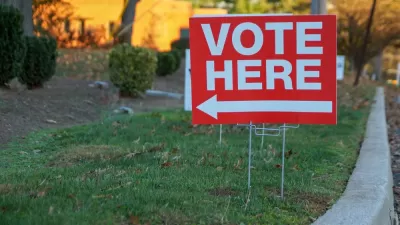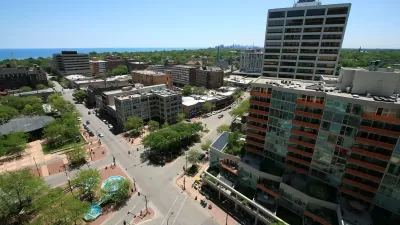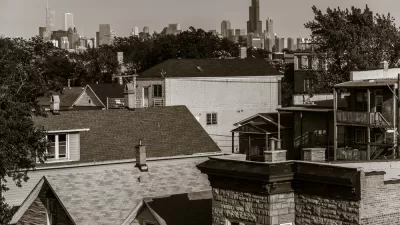Michael Gecan uses the Chicago and New York City areas as examples of the challenges facing mature suburbs, examines the ways many are avoiding reality, and draws a series of conclusions.
"A few months ago, about 125 leaders from religious institutions, civic organizations, and social service groups met at Etz Chaim synagogue in the town of Lombard, in DuPage County, to wrestle with a new reality: a budget crisis. Budget crises aren not supposed to happen in places like west suburban DuPage. It is home to nearly one million souls and more than 600,000 private sector jobs. It boasts a median income of $70,000, one of the highest in the nation. And yet the county, strapped for cash, was threatening to cut convalescent services, veterans' services, housing assistance, breast cancer screening, and many other essential public functions.
Until recently DuPage County had been one of the big winners during the forty-year decline and imminent collapse of Cook County. Major corporations fled Chicago's failing downtown and moved to DuPage's open spaces and tax-friendly towns. Working class homeowners on the west and southwest sides of the city sold their bungalows and bought ranch houses, Cape Cods, and new town homes in Wheaton and Naperville and Downers Grove. Families troubled by the city's public schools happily sent their children into shining new facilities and well-equipped classrooms. County government prided itself on its lean budgets and effective service-delivery.
By the date of the meeting, however, the developers who had helped double DuPage's population in just 30 years had run out of land. The income generated by their construction efforts had dwindled to a trickle. Education and public safety costs continued to climb. Scores of specialized local districts and commissions-water, sanitary, and others -absorbed hundreds of millions of dollars that never made it into the general operating budget of the county and were subject to little, if any, scrutiny or oversight. And residential real estate taxes-the backbone of the county's budget due to the long-standing agreement to attract and retain business by keeping commercial taxes low-soared."
Thanks to Edward Lifson
FULL STORY: On Borrowed Time: Urban decline moves to the suburbs

Maui's Vacation Rental Debate Turns Ugly
Verbal attacks, misinformation campaigns and fistfights plague a high-stakes debate to convert thousands of vacation rentals into long-term housing.

Planetizen Federal Action Tracker
A weekly monitor of how Trump’s orders and actions are impacting planners and planning in America.

In Urban Planning, AI Prompting Could be the New Design Thinking
Creativity has long been key to great urban design. What if we see AI as our new creative partner?

King County Supportive Housing Program Offers Hope for Unhoused Residents
The county is taking a ‘Housing First’ approach that prioritizes getting people into housing, then offering wraparound supportive services.

Researchers Use AI to Get Clearer Picture of US Housing
Analysts are using artificial intelligence to supercharge their research by allowing them to comb through data faster. Though these AI tools can be error prone, they save time and housing researchers are optimistic about the future.

Making Shared Micromobility More Inclusive
Cities and shared mobility system operators can do more to include people with disabilities in planning and operations, per a new report.
Urban Design for Planners 1: Software Tools
This six-course series explores essential urban design concepts using open source software and equips planners with the tools they need to participate fully in the urban design process.
Planning for Universal Design
Learn the tools for implementing Universal Design in planning regulations.
planning NEXT
Appalachian Highlands Housing Partners
Mpact (founded as Rail~Volution)
City of Camden Redevelopment Agency
City of Astoria
City of Portland
City of Laramie





























